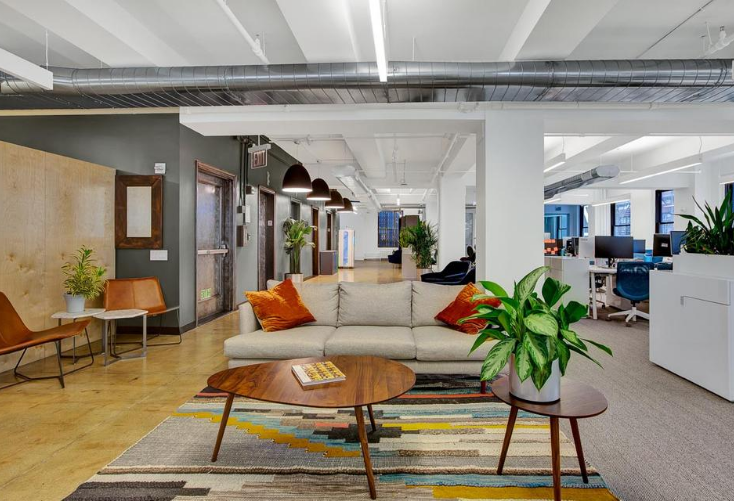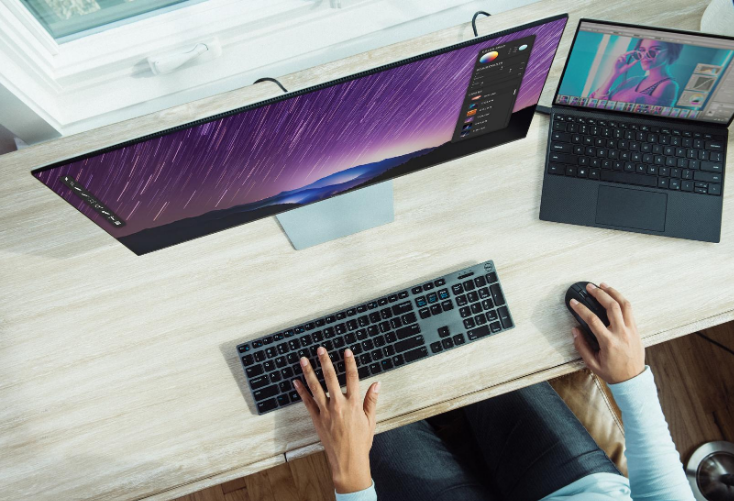Hand selected flexible workspace news from the most reliable sources to keep you ahead of the pack. We find all the latest news, so you don’t have to. Morning and afternoon updates. Stay in the know.
Here’s what you need to know today:
- The Coworking Industry Is Struggling NEW
- Adapting To The Future Of Work NEW
- Minimizing The Health Risks Of A Sedentary Job NEW
- Remote Work Is Here To Stay
- What Does The New Normal Of Work Mean?
- Coworking Aims To Revitalize Rural Areas
The Coworking Industry Is Struggling
The ongoing pandemic has unsurprisingly caused the flexible office industry to take a significant hit, especially household names like WeWork and Knotel.
Since the beginning of July, Knotel has faced several lawsuits from landlords claiming the company owes a total of $1.6 million in unpaid rent, while WeWork is shifting its focus from small startups to large enterprises.
“(Knotel is) always evaluating and adjusting our portfolio to best meet the needs of our customers, through Covid-19 and beyond, and we have reached positive resolutions with many owners,” a company spokesperson said. “We take our landlord relationships very seriously, and will continue to actively engage with them to achieve good outcomes during these challenging times.”
Meanwhile, WeWork has reportedly addressed its setbacks by catering its services to large clients, which now make up 65% of the company’s customer base. According to WeWork CEO Sandeep Mathrani, this is to boost the company’s sales and allow it to become profitable.
Despite the company’s new strategy, the industry as a whole is currently struggling as companies continue to operate remotely and are avoiding taking up workspace in the midst of economic uncertainty.

Adapting To The Future Of Work
Research from YouGov indicates that 32% of UK small and medium sized businesses have struggled to transition to remote working arrangements. But as the world remains in limbo and COVID-19 cases stay steady, companies will need to find ways to operate remotely or suffer from major losses.
Video conferencing tools are a good start as they provide employees a way to connect and meet virtually. Using resources such as Zoom, Slack or Microsoft Teams can help workers collaborate without risking the safety and health of colleagues.
Technology for both employers and employees is key to operating a business remotely. Without it, productivity and output can take a major hit. Tools such as laptops with webcams and microphones and reliable Wi-Fi can make the difference between a productive work day and stress-induced one.
The trend to a more digitized workplace has been expected for years, but the rate in which companies have been forced to adopt these resources was unexpected. However, in the long run, technology integration will have the ability to improve efficiency by taking over menial tasks and opening up a door of possibilities to upskill.
Overall, if organizations implement the proper tools and protocols for their employees, operations can continue in a more efficient and productive manner.

Minimizing The Health Risks Of A Sedentary Job
Research has found that working a sedentary job can lead to neck aches, back pain and much more. Now that many workers are working from home on their couches or at their kitchen counter, this could be a persistent problem.
“I encourage people to establish environments that lead them to be as efficient as possible,” said Zachary Stapleton, a University of Chicago physical therapist.
Stapleton suggests that workers should have both feet on the floor, elbows at a 90-degree angle and the computer monitor should be even with the worker’s brow, also referred to as the “neutral posture.”
“If you’re able to do these main things, the rest will fall into place,” said Stapleton.
Nikki Weiner, occupational therapist and co-founder of Rising Workplace, helped create the company specifically to deliver ergonomic solutions for workplace environments.
In order to truly create a workspace that is ergonomic, Weiner suggests having a setup that features adjustable furniture and chairs that have back support, which allows you to work in the neutral posture. Additionally, those who use laptops should consider purchasing an external mouse and keyboard to maintain the neutral posture.
Not only is furniture necessary for an ergonomic workspace, but natural lighting can also help minimize eye strain and prevent potential headaches.

Remote Work Is Here To Stay
Remote working has become a clear result of the ongoing pandemic, and with uncertainty looming in the air, this working arrangement is not going anywhere.
For years, business leaders resisted flexibility in the workplace due to misconceptions that it hindered productivity. However, most now realize this is not true and working remotely can actually improve an employees’ output.
Companies who already embraced cloud technology and workplace flexibility had the least trouble transitioning to a fully remote workforce. Organizations that had little experience with these tools and lacked the appropriate emergency plans inevitably struggled more.
Now that many companies have adjusted to remote working, they are able to reap the benefits. For instance, working from home means less commutes, which is one of the biggest stressors for an employee. Less stress means improved morale, and improved morale means better productivity.
According to research from Vox, 99% of workers who have started working from home would like to do so permanently even if it is just for a portion of the week.
Businesses also are enjoying the benefits of remote working by cutting down on overhead costs to maintain offices. Additionally, turnover rates are decreased with a remote workforce.
Although this working arrangement has numerous perks, there are also challenges particularly in terms of cybersecurity. That is why equipping employees with tools to keep their devices secure will be necessary moving forward.

What Does The New Normal Of Work Mean?
The new normal of the workplace has been an ongoing topic of discussion over the past several years, but these changes have occurred quicker than any analyst could have predicted. On the surface, the new way of working will include face masks, increased sanitation and distanced workstations. But on a deeper level, the way organizations operate, integrate technology and recruit top talent will be the true signifiers that define the future of the workplace.
A report from Gartner has revealed that many workers will have the option to work from home indefinitely, but a hybrid of both in-office and at-home arrangements may be a more accurate representation of the workplace moving forward.
Adopting both work arrangements allows organizations to reap their benefits, while alleviating the downsides. But it is still up to business leaders to change their managerial methods to ensure that the way we work is effective and nurtures a culture of empathy, transparency and communication.
Furthermore, adopting flexible capabilities allows organizations to become more diverse in their search for top talent. Through the adoption of technology, top candidates can come from virtually anywhere in the world and provide the company with more insight to grow.
Overall, it is clear that the workplace is going through multiple transformations that will eventually equate to a place that is technologically-fueled, diverse, flexible and agile for the foreseeable future.

Coworking Aims To Revitalize Rural Areas
In the rural town of Yanceyville, North Carolina, small business owners start off their mornings parked outside of government buildings or McDonald’s to check their email. According to the Caswell County economic development director Cori Lindsay, only around 50% of the population have access to high-speed internet at home.
In order to boost entrepreneurialism and attract better talent, the county has revealed plans to work with coworking operator HQ Raleigh in order to open its first coworking space.
CoSquare, the coworking hub within an old pharmacy, will offer offices and fiber internet. The coworking space will also become an affiliate member of HQ Raleigh, allowing members to use HQ resources at its various locations.
Currently, CoSquare has one anchor tenant, agriculture startup Measur.io, which provides real-time data to provide soil management recommendations.
According to Lindsay, the county hopes that the new coworking hub will help revitalize and boost business in the downtown area.
“We are going to see an entire network of rural communities,” said Jess Porta, director of HQ Raleigh. “I think we are going to see that continue to spread out where people can have a rural lifestyle but can tap into big city resources.”
















